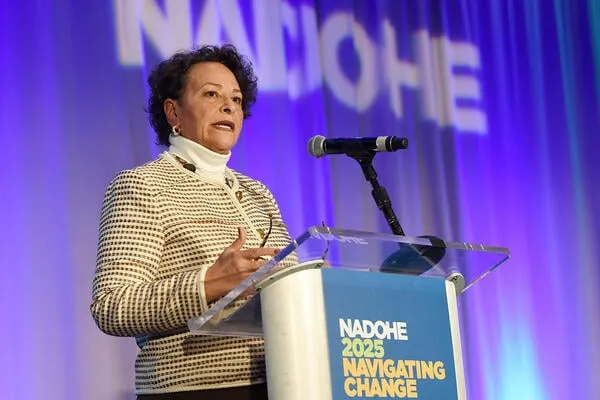Higher education has reached its canary-in-a-coal-mine moment: The recent resignation of the University of Virginia president under intense political pressure isn’t just another leadership transition but an indicator of hazards ahead, with similar pressures mounting George Mason University. Higher education governing boards cannot ignore these urgent warning signs that signal peril for the governance structures that have supported our universities and colleges for centuries.
U.S. higher education is built on a unique model of governance in which independent citizen trustees exercise fiduciary oversight, set policy, safeguard institutional autonomy, support fulfillment of the mission and act in the best interests of the university or college as stewards of the public trust. This model of self-governance has preserved the academic freedom and driven the innovation that are hallmarks of U.S. higher education and that form the foundation of the profound societal impact and global prominence of the sector.
Today, this governance model faces significant disruption. At both public and private institutions, trustees are being encouraged by policy-driven think tanks to serve as ideological agents and interfere with management rather than act as true fiduciaries. This violation of institutional autonomy is destabilizing and harmful to governance, yielding fractured boards, diminished presidential authority, politicized decision-making, academic censorship and loss of public trust.
Boards must take this warning very seriously and take a hard look at whether their decisions reflect independent judgment aligned with the institution’s mission or, instead, the influence of external agendas. If governance fails, academic freedom is compromised, academic quality is weakened, public trust is eroded and the promise of U.S. higher education and its role in a democracy will disappear.
To guide boards in upholding institutional autonomy and mission stewardship, the Association of Governing Boards of Universities and Colleges recently launched the Govern NOW initiative with support from a Mellon Foundation grant. As part of this initiative, AGB developed a models of governance comparison and checklist for governance integrity. These tools help board members distinguish between effective governance and ideologically driven overreach and provide a framework to assess their practices and recommit to their fiduciary responsibilities.
This is especially critical due to growing misinformation about the role of trustees. Without a true understanding of their responsibilities, they might act independently of board consensus, undermine governance norms, overstep management boundaries and pursue ideological agendas. These actions not only weaken governance by harming board cohesion and culture but also threaten the institutional stability and mission that trustees are charged to uphold.
This moment is not about partisan politics. It is about leadership and whether we will allow institutional governance to be hijacked by ideological conflict. At stake is the integrity of the governance system that has been the foundation on which the strength and distinction of U.S. higher education has been built.
To every trustee, I implore you to look inward. Ask whether your board is governing with independence and as stewards of mission and public trust. Use the tools AGB developed to evaluate your culture and boundaries. Engage in real dialogue with your president. Lead together with courage and clarity to secure higher education’s promise.



